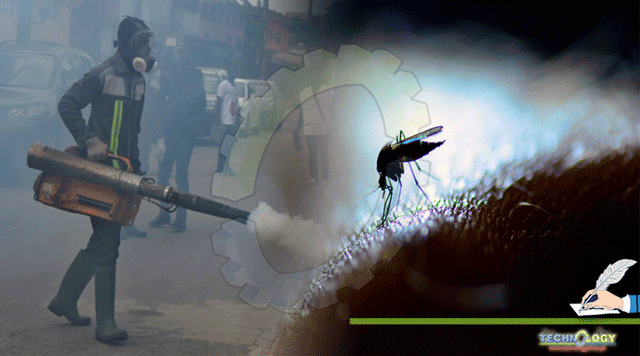As a result of climate change, the global footprint of many infectious diseases is predicted to change, notably vector-borne diseases such as dengue and malaria fever.

By Leena Khawar,Dr Muhammad Sohail Sajid
An awareness of the scope and geographic context of predicted climate change impacts on disease transmission and spread, in combination with an understanding of effective adaptation strategies and responses, can aid in the identification of gaps and best practices to mitigate future health impacts. We conducted a scoping review of published review literature to investigate the types of evidence for the impacts of climate change on two major mosquito-borne diseases of global health importance, malaria, and dengue, as well as to identify the range of relevant policy responses and adaptation strategies that have been devised. Three electronic databases (PubMed, Scopus, and Epistemonikos) were searched for relevant published reviews in an organized and systematic manner. The following were the inclusion criteria: systematic studies conducted from 2007 to 2020 in either English or French that addressed climate change consequences and/or adaptation strategies connected to malaria and/or dengue were considered. In addition to article features such as review type, disease(s) of interest, geographic focus, and evidence type, the following information was gathered: To identify and compare regional evidence on climate change impacts and adaptation measures, the evidence was compiled and summarised.
The global climate suitability for the transmission of dengue has increased by almost 10% for Aedes aegypti and 15% for Ae. albopictus between 1950 and 2018, according to a study by Watts et al. Ongoing climate change is anticipated to further extend the latitudinal range of Ae. aegypti mosquitoes. In China, there has been a trend of the expanded geographical region from South to North China in line with warming temperatures. Similar increases are anticipated in western, central and eastern Europe, including in southeast England, towards the end of the twenty-first century.
In the studies evaluated, there is widespread consensus that climate change would increase malaria transmission at a higher rate in Africa, portions of Latin America, and parts of Southeast Asia in the coming decades. Anopheles mosquitoes are expected to spread northward across Europe, according to recent research.
According to the majority of the assessed research, more focus is placed on the development of predictive models and early warning systems (EWS) to improve outbreak preparedness and response, as well as the capacity of surveillance and control systems. To be more accurate in predicting disease emergence and spread, predictive models and early warning systems (EWS) should strive to incorporate climate and meteorological factors alongside non-climate factors, such as socioeconomic variations, land-uses changes (including urbanization), and population growth.
Long-term, well-designed local studies are required to give the necessary information to construct models and responses that are relevant to the local environment. According to Li et al., further sophisticated study on the association between extreme weather events and dengue fever is needed to construct regional-specific models for the high-risk locations of dengue fever in south China, as an example. In the end, improving multidisciplinary collaboration between climate studies and health services, as well as improving public health education, are both future goals.
Several studies have concluded that novel vector control measures, such as wetland management and integrated vector management (IVM), will be required, notwithstanding the difficulties associated with finance and inter-sectoral collaboration in the future.
Furthermore, Bardosh et al. emphasise the importance of understanding the myriad global changes occurring at the same time (e.g. climate change; land use; agriculture; dams; irrigation; urbanisation; economic development; population movement; conflict; socio-political shifts; biological change; drug resistance; and so on) do not occur in isolation from one another. Of particular importance is the fact that successful adaptation and reaction will include interdisciplinary collaboration between meteorologists, biologists, climate scientists, social scientists and epidemiologists, as well as partnerships with indigenous peoples to incorporate local knowledge.
According to Watts et al., adaptation planning and risk management are needed at all levels of government, with national strategies being connected to subnational and local implementation to ensure success. In recent years, there has been an increase in the number of countries reporting that their meteorological agencies give climate information to the health sector. This is encouraging.
A record number of 32 reviews met the requirements for inclusion. The Southeast Asian region had the most evidence for the effects of climate change (including climate variability) on dengue fever, while the African region, particularly in highland areas, had the most evidence for the effects of climate change on malaria. Few evaluations specifically addressed the application of adaptation measures to combat disease transmission caused by climate change; nonetheless, suggested strategies included improved surveillance, early warning systems, predictive models, and vector management.
Climate change, especially climate variability, has been shown to have a significant impact on the transmission and future expansion of malaria and dengue fever, two of the world’s most important vector-borne diseases. More work is needed to establish multi-sectoral climate change adaptation strategies to improve the capacity and resilience of health systems and communities, particularly in areas where future appearance and re-emergence of malaria and dengue fever is projected. This scoping review could be a good starting point for future systematic reviews of primary literature.
Authors
Leena Khawar
(DVM, M.Phil. Parasitology)
University Of Agriculture Faisalabad
Dr Muhammad Sohail Sajid
Associate Professor, Department of Parasitology
University Of Agriculture Faisalabad